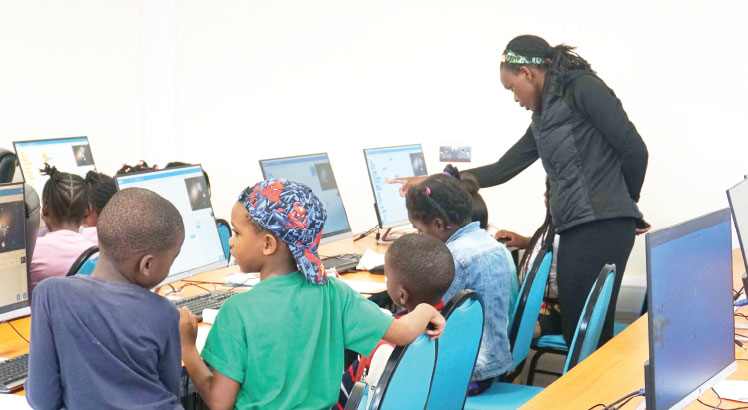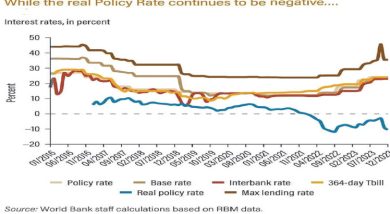Computer coding for future leaders
Busy in a computer lab at the Malawi University of Business and Applied Sciences (Mubas) in Blantyre, Stacy Chitsime, 12, explains how to create and store various instructions coded in a computer language.
The Form Two student at South End Secondary School in Blantyre exudes an air of competence that belies her age.
Creating such variables allows her to store data for future reference and processing, she states.
The process is one of first lessons in a seven-week training conceived to put young people on the path to computing and programming using Python, a widely used language in computer programming.
Tapping on her keyboard, Stacy intends to use her computer programming skills to advance her career in law or creative writing.

“I can use this knowledge to boost my business when I grow older. I enjoy writing, so I hope to use the skills to develop a website to sell more books and poems,” she says.
Stacy is one of the trainees under Mubas’ Hello Tomorrow Programme designed to introduce young people to the wonders of computing and programming.
The initiative aims to create a cohort of computer-literate and tech-savvy professionals who can harness the power of information and communications technology to transform Malawi.
A few desks away, Blantyre-based siblings, Ekari and Wayne Kamanga, are learning to develop video games using Scratch.
The high-level programming language allows children to create the games by clicking and dragging characters and icons.
Sara Khudze, a trainer in the programme, says the computer programme helps the children develop problem-solving skills and improve their chances of succeeding in science, technology, engineering and mathematics.
She explains: “Python is widely used in the industry and academia. It is currently one of the most in-demand programming languages in the job market.
“By learning Python at such an age, they will gain a competitive edge in their future careers.”
Khudze also teaches undergraduate students at the university.
She says integrating Python into modern work practices, particularly on the web will “definitely help improve productivity and efficiency in various industries in Malawi”.
Python is used extensively in data science, artificial intelligence and machine learning, which have become essential to modern digital economies.
Eddie Malizani, 16, another trainee, believes the computer programming skills will help him advance his career.
“Technology is changing the way we do things,” he says. “I want to become an engineer, but engineering is not all about books. These days, engineers can run programmes to automate some tasks instead of just relying on manual work.”
Mubas Innovation Hub manager Umali Leonard has a wider vision. Beyond creating a cohort of competent workers, he wants to cultivate a generation that can effectively contribute to Malawi’s development and transformation agenda.
“We want to train these children to innovatively use technology. By the time they reach their 20s and 30s, the mid-way point of the Malawi 2063 [long-term national vision], these children will be the most active in the economy and labour force,” he states.
Khudze and Leonard recognise that programming will be important in developing programmes, software and information systems for greater efficiency in other sectors. These include agriculture, mining and tourism, the anchors of the Malawi economy.
Equipping children with skills in computing and programming is pivotal to the Malawi 2063 roadmap to “have robust ICT infrastructure with cross-country coverage of reliable and affordable services fostering technological adoption and digital access”.
The log-term vision reads: “As a country, we shall have a world-class digital economy that is globally competitive with, among other things, sound e-commerce, e-learning, e-health and e-governance systems.”
Leonard believes that introducing children to technology at such a young age will equip them “with different skills they can use to innovate and develop solutions that can turn Malawi into a self-reliant nation”.
“The ICT leaders expected to lead Malawi to a brighter tomorrow will have to be trained today,” he says.






One Comment